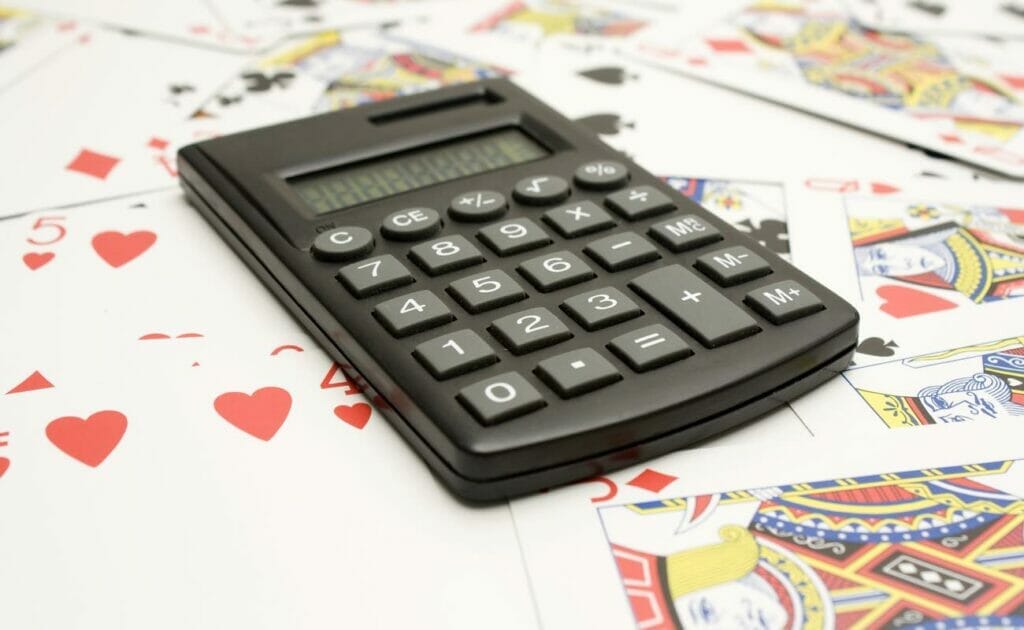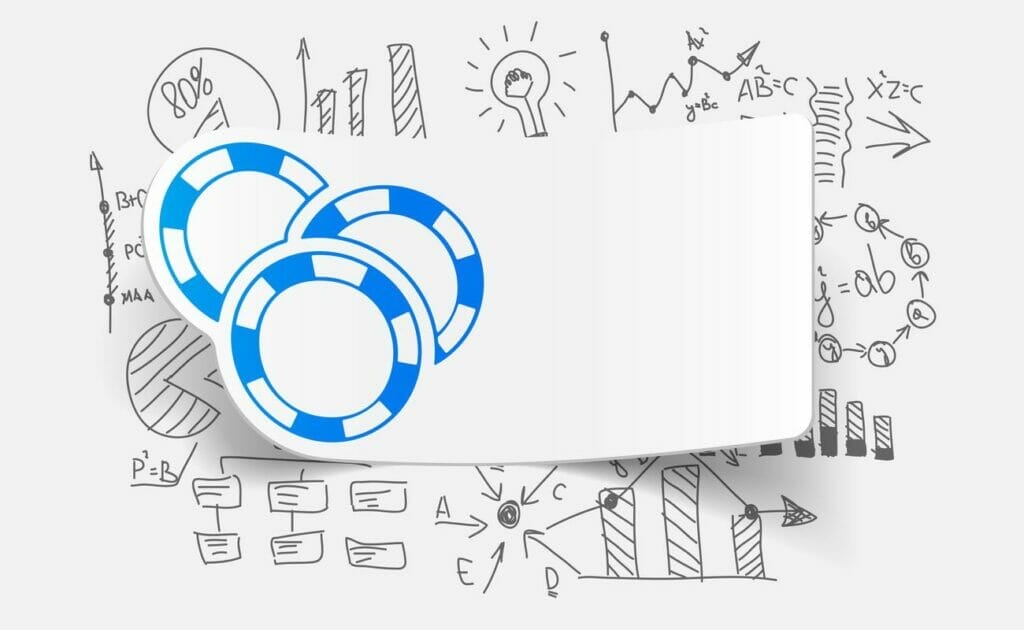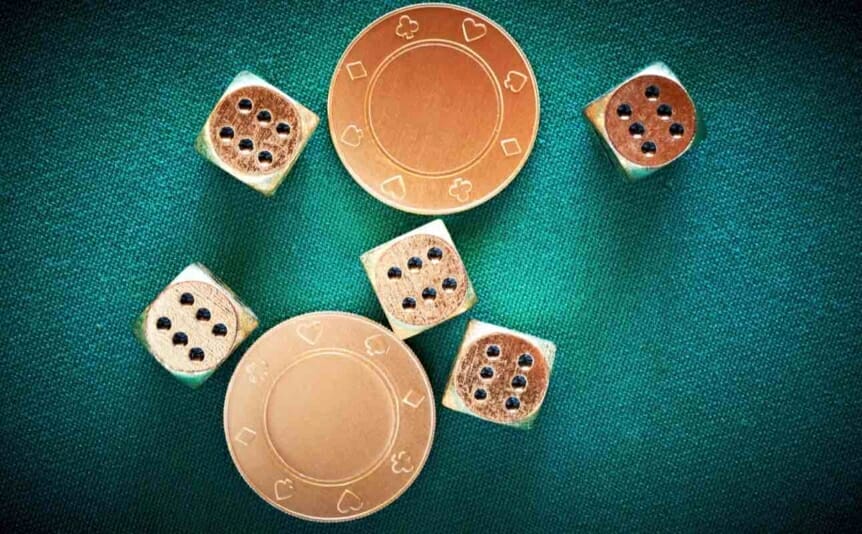
Poker is unique among gambling games. Why? Because in poker, it’s not the best hand that tends to win — It’s the best player. The luck of getting the best hand is only part of the battle. To truly be successful at poker, you need to develop a specific set of skills and use them together with a well-rounded strategy that includes a solid understanding of game theory, probability, and psychology.
Ingo Fiedler, a renowned economist, put this theory to the test in a study where he analyzed hundreds of thousands of hands that were played on online poker sites over a six-month period. He found that the best hand won only 12% of the time, on average, and not even a third of hands went to showdown. In other words, skilled players will bet and bluff their opponents off the table.
The only way to achieve that level of mastery is to hone two skill sets. One is the psychology of the poker table. The other, like it or not, is math. The better you are at poker math, the better you’ll play poker, online or live. It’s no coincidence that the best online poker players today use the Game Theory Optimal (GTO) strategy, which is heavily based on math, to their advantage.
The better your poker skills, of course, the better your chances of success in other walks of life, such as business. Take a closer look at how you can improve your math skills with poker.
How Important Is Math in Poker?
Winning a poker game takes a certain amount of skill, strategy, and luck. You need to be able to read the current situation and the players around you and decide what the best move is at that moment. Incorporating the math of poker into your strategy helps you calculate how likely a certain event is to occur so you can make an informed decision on whether to call, bet, raise, or fold in any given situation. It’s the foundation of every poker tip and strategy you come across and a lot of players use math in their poker games without even realizing it.
Here are a few areas of the game where math plays a key role.
Probability and Odds
In poker, probability is about determining how likely a specific outcome or event is to occur, like drawing the card you need. Math is used to assess the risks and make calculated decisions based on statistical reasoning, giving you a better idea of whether to play it safe or go big.
Pot Odds
Pot odds are a fundamental concept that plays a pivotal role in strategic decision-making in poker by providing a mathematical framework for players to assess the risk and potential reward associated with a particular hand. They compare the current size of the pot to the cost of a bet you’re considering so you can decide whether the potential reward justifies the risk.
Implied Odds
Implied odds look at potential future bets that could be made based on what is currently happening in the game. By factoring potential future bets into your decision-making, you’ll better understand what you could gain later in the game. So, even if the current pot odds aren’t great, for example, calculating the implied odds can give you a better idea of whether the odds will get better later in the game, and the anticipation of future winnings can influence whether you call or fold.
Expected Value (EV)
EV involves calculating how profitable a play might be in the long run by weighing the potential gains and losses associated with different courses of action. A positive EV indicates a potentially profitable move, while a negative EV suggests the opposite.
Equity
Equity in poker is all about determining your share of the pot based on the current circumstances of the game. Understanding your equity allows you to make more informed decisions in the heat of the game.
Combinatorics
This branch of mathematics deals with counting and calculating possible combinations. So, in a poker context, combinatorics helps assess the probability of certain card combinations occurring, so using it can give you a better idea of the likelihood of drawing a specific hand.
Poker Game Theory
Game theory involves strategic decision-making in situations where the outcome depends on the choices of all players. In poker, understanding this theory can guide decisions in terms of balancing strategies, maximizing gains, and minimizing losses.
While it may be possible to win a game without using math in poker, it becomes more difficult to win consistently if you don’t put an effort into learning some of the essential poker math. Luckily, contrary to popular belief, it’s not nearly as difficult as it seems. Learn three tips for how to get better at math with poker.
1. Understanding Basic Poker Math
Even if you’re not the most mathematically-minded person, the good news is that if you know how to play poker, you already have good enough math skills to build on. When you’re playing with a deck of 52 cards divided into four suits of 13 cards each, and you know that a card won’t be dealt again once it’s been dealt, played, or folded, you’re already processing information mathematically. You’re doing it on automatic pilot rather than actually calculating, which means it’s time for the next level.
The first thing you can easily learn is how to calculate outs. These are the cards that can be dealt to make your hand. Working your outs out in your head is a skill you can immediately put to use in online poker tournaments. Here’s how it works. Say you’re in a Texas hold’em poker tournament with four hearts in your hand. There are 13 cards in a suit, so there are nine hearts left in the deck for you to complete a flush (13 – 4 = 9). These are your outs. Or say you’re holding 6♣ 7♣, and the flop comes 6♠ 7♦ A♥. Now you have two pairs, but maybe you could make a full house. For that, you have four outs: 7♠ 7♥ 6♦ 6♥.
2. Calculating Poker Odds

Now that you know how to calculate your outs, here’s how to calculate the odds of hitting them. There are three main ways to do this. You can consult a chart (easily available on the internet), calculate the exact odds (the math is quite complex), or take a shortcut with the “Rule of Four and Two,” which is quite a simple method.
Here’s how you do it: Multiply your outs by 4 when both the turn and river are still to come. With one card to go (from turn to river), you multiply your outs by 2 instead. Say you’re playing poker online, and a player goes all in after the flop while you’re sitting with nine outs for a flush. If you call, you’ll see the turn and the river. So what are the odds? If you apply the rule, you’ll get 9 x 4 = 36. (As you’ll find it on a poker chart, the actual percentage probability is 35%, but the figure is close enough.) When there’s just one card to come, nine outs works out as 9 x 2 = 18%, close to the actual figure of 19.1%.
3. Determining Pot Odds
One way that knowing your outs can be extremely useful is when you decide whether or not to call a bet based on the amount of money in the pot and your chances of hitting one of your outs. This is known as pot odds. Here’s a handy method of figuring out this situation.
Sticking with the flush example, you have nine outs after the turn. There’s $100 in the pot and your opponent bets $20. You have to bet $20 for a chance to win the pot and get your $20 back. There are 46 unseen cards in the card. Nine of them can make your hand and 37 can lose it. This provides you with two different ratios: the pot ratio ($120 to $20) and the card ratio (37 to 9). The rule of thumb is that it’s profitable to call when the pot ratio is bigger than the card ratio. Otherwise, fold. In this example, $120 divided by $20 is $6, and 37 divided by 9 is 4.11, just a little over 4. Since 6 is greater than 4, on average, it’s profitable to call the bet.
Having this knowledge under your belt can make a big difference to your poker tournament strategy.
Poker Math: The Next Step

There’s a lot more to poker math than working out your chances to win and pot odds. If you really want to upgrade your game to a professional level, you’ll want to calculate such things as your Equity Value (EV), break-even percentage, fold percentage, opponents’ frequencies, and more. But that shouldn’t stop you from playing poker online for fun and to gain experience. Online poker tournaments, for instance, will give you plenty of opportunities to practice the basics of poker math. This will train your math skills overall and prepare you for more complex calculations if you’re interested. If you’re determined to take things further, you may want to consider approaching a poker coach.
Improve Your Online Poker Skills at Borgata Online
There’s no substitute for experience, and you’ll get it in spades when you register to play poker at Borgata Online. Meet like-minded players and enter daily poker tournaments, cash games, and sit-and-go games to suit your budget and skill level. It’s among the best online poker training you could hope for.
The Borgata Online casino offers even more, in case you’d like to mix things up with the broad range of online casino games such as blackjack, roulette, baccarat, and slots.
